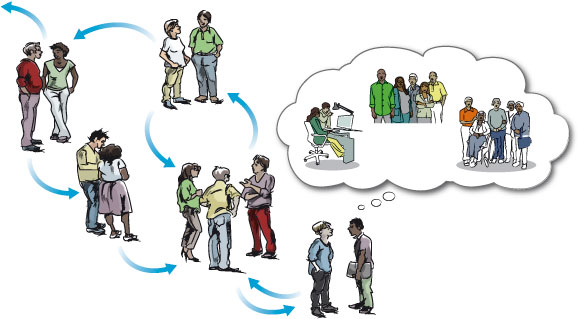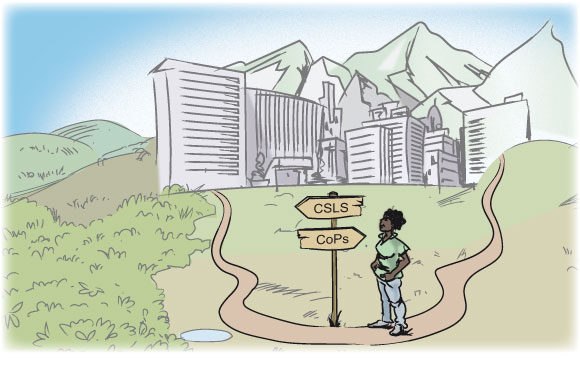1 Managing Change with others
Week1 of this course introduced a general definition of a system as ‘an assembly of interacting components that does something for somebody’. It also highlighted that for a STiP practitioner a ‘system’ does not refer to something that exists in the world, but is applied to processes for making sense of complexity and interconnectedness. We cannot take for granted our ability to make sense of a world full of volatility, uncertainty, complexity and ambiguity. There is always a risk that our ideas will not be transformed at a rate commensurate with the speed and complexity of a rapidly changing world. Donald Schön (1973) introduced the notion of a learning system and established its relevance for managing change in complex times as follows:
- …our society and all of its institutions are in continuing processes of transformation. We cannot expect new stable states that will endure even for our own lifetimes.
- We must learn to understand, guide, influence and manage these transformations. We must make the capacity for undertaking them integral to ourselves and to our institutions.
- We must, in other words, become adept at learning. We must become able not only to transform our institutions, in response to changing situations and requirements; we must invent and develop institutions which are ‘learning systems’, that is to say, systems capable of bringing about their own continuing transformation…

The concept of learning systems can hold a range of different meanings, some of them in common usage and others applying more specifically and technically. Learning systems may for instance refer to:
- The concept of educational systems, usually encompassing the infrastructure and activities associated with teaching, learning, administration and management in the formal sector.
- Computer hardware and software packages and/or consultancy services designed or offered with learning in mind.
- A range of theoretical and practice traditions where a system of interest with the associated purpose of learning can be identified or designed.
This course is particularly concerned with the third of these meanings. Looking back at the definition, you will notice that ‘a range of traditions’ is mentioned. That is because there is not a single, one-size-fits-all approach to purposeful systemic learning. Over time, a variety of systems learning traditions have emerged. This course introduces two of those traditions. The Critical Social Learning Systems (CSLS) tradition was developed by Richard Bawden and his colleagues in Australia (Bawden 2010) and the tradition of Communities of Practice was developed by Etienne Wenger (later Etienne Wenger Trayner) and Bev Wenger-Traynor – see Wenger (2010; p. 179) in Blackmore (2010) and Wenger-Traynor and Wenger-Traynor (2020).
The Open University module TB872, on which this short course is based, provides a deeper discussion about how to enact learning systems based on those traditions, but for the purpose of this short course only their basic principles are introduced so that you can be aware of them as part of the starting conditions for considering managing change with STiP.

